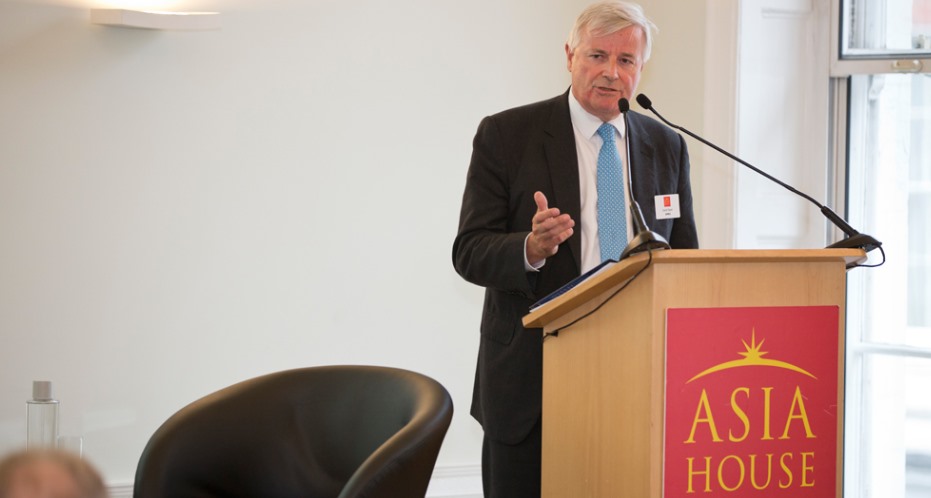Driving commercial and political engagement between Asia, the Middle East and Europe
Driving commercial and political engagement between Asia, the Middle East and Europe
Driving commercial and political engagement between Asia, the Middle East and Europe

In the wake of Brexit, it is time the UK rebuilds its historic ties with the ASEAN member states, a senior KPMG executive has said.
“The UK is an important destination in its own right but it needs to think about how it re-positions itself for ASEAN, if it is no longer a springboard to the EU,” David Sayer, Senior Partner & Member of the Board, KPMG UK LLP, told a conference of business leaders and diplomats at Asia House on Friday 16 September.
“I do think there is real potential for the UK to build on its historic ties with ASEAN,” he continued, pointing out that to date Britain had done more trade with Belgium that with Indonesia, Vietnam, Malaysia and Singapore combined.
“I think in 20 years’ time that is going to be massively different,” he said.
“In fact there is potential for Singapore to be the model on how the UK does free trade agreements (FTAs) post-Brexit,” he said. “If we can find a way to replicate the FTA that Singapore negotiated with the EU, that could be a good way to go forward,” he added.
“I would like to see our first FTA to be with Singapore and to replace the model of the Treaty of Rome with the Treaty of Singapore,” Mr Sayer continued, speaking at the ASEAN on the global stage conference, which was held in partnership with KPMG.
He said it would greatly help businesses if the current period of uncertainty about Britain’s future relations with the EU was as short as possible. He said he expected British Prime Minister Theresa May to strike a unique deal with the EU rather than adopting an off-the shelf-solution like the Norway model.
“Economic logic dictates that it is in the interests of the EU and the UK to trade with each other without tariffs and with no significant non-tariff barriers to trade and for the UK to provide financial services to Europe and to have some control over migration. But political logic is different,” he said in his speech.
He pointed out that the UK had made a massive contribution to the EU budget and the impact of Brexit could be felt, if not more so, in the European markets than the UK markets on the day of the EU referendum when European stocks plummeted.
“If you look at the day of the referendum result the EU countries went down a lot, whereas the UK stayed in line with the Dow,” Mr Sayer said.
Brexit not a priority in Europe
He pointed out the UK had to negotiate its exit from the EU with 27 countries and the EU Commission, who would all want things, “and we don’t know what they are and some of those governments will change during the three year period of negotiations and for them their biggest priority isn’t Brexit, it’s winning their elections,” he added.
“Many people don’t think we will trigger Article 50 until after the German elections (expected in September 2017),” he said.
Will London retain its unique status as a global finance centre? Mr Sayer seemed confident the capital would.
“I think it’s possible to argue that Europe needs London as much as London needs Europe to provide the market for bonds, for trade and investment assets. It would be very hard to replace London as an international finance centre in a reasonable timescale,” he said.
He admitted that passporting rights were a “very complicated part of the Brexit negotiations” as customs unions did not typically cover financial services.
“Financial services are a massive opportunity for London to make a real contribution on building the concept of infrastructure as an asset class and for the whole of the UK to come together and make a major contribution. Providing you have enough spread involved it ought to be possible to do an infrastructure asset,” he said.
The fall in London commercial real estate as a result of Brexit was of great interest to investors in ASEAN, he pointed out. There had also been a boom in leisure, hospitality and education, due to the weak pound.
“The winners will not be the ones paralysed by the uncertainty but the ones evaluating the scenarios. Some may involve a hedging strategy whereby they get regulatory approvals to operate in the EU if they can’t get passporting rights. There are lots of potential outcomes and sensible businesses are preparing for each one,” he concluded.
The conference, which drew on insights from KPMG’s recently published Southeast Asia in transition report, attracted business leaders and diplomats. Speakers included Lord Green of Hustpierpoint and Senior Partner and Chairman of CIMB Group Nazir Razak.
KPMG launched a report titled Forging Ahead: UK-ASEAN business after Brexit at the conference. Asia House has contributed insights from its network to the publication. Download the report here.
naomi.canton@asiahouse.co.uk
To see all the events that Asia House is holding as part of the Asia House Brexit Series click here.
To read all the Asia House stories on Brexit click here.
